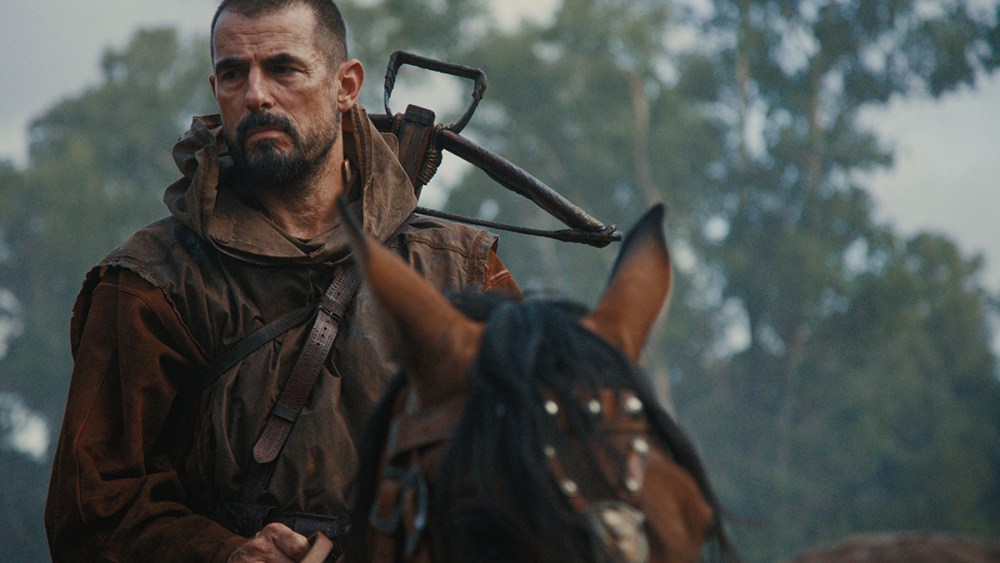Can Shooting an Apple Start a Franchise?
As Swiss legend goes, William Tell became a medieval folk hero when occupying Austrian militants forced him into a sick game: He was forced to fire an arrow into an apple atop his son’s head to save his family from execution. It was a daunting task, but the warrior’s aim was true, inspiring a rebellion among the Swiss and, centuries later, everything from Gioachino Rossini’s iconic overture to a very funny “Far Side” comic. With “William Tell,” producers hope that fable can spawn an action franchise as well.
Debuting at the Toronto Film Festival, it’s a film driven by future-proofed storytelling, setting up an overwhelming sweep of characters over its plodding 133-minute running time, before culminating in a shameless sequel tease in its final image. And yet, with a towering Claes Bang in the lead role and a dynamic supporting cast, it’s easier to swallow the notion of there being more Tell adventures to come.
Drawing inspiration from Fredrick Schiller’s 1804 play about Tell, writer-director Nick Hamm looks to engage audiences immediately by reminding them that this character is an icon: He’s the guy who shot an apple off his son’s head! The comically overwrought opening sees Bang’s hero ready his crossbow against his child (Tobias Jowett), surrounded by a vicious army and aghast townspeople. Now, I bet you’re wondering how they all ended up here.
From that preposterous first impression, the movie cuts to three days earlier, presenting itself as a brassy epic while counting ridicule with hideous period-appropriate haircuts, lines like “scimble scamble” and Steven Price’s overblown orchestral score. There are rousing war speeches and elaborate, multi-stage battle sequences, but the best pleasures come from basking in how seriously the stately film takes itself. Mounted at a substantial $45 million budget, the decorated medieval sets and big vistas are captured in widescreen by DP Jamie D. Ramsay, though the visuals don’t cast the transportive spell that the best adventure films do.
Instead, what propels “William Tell” is a conviction of character, particularly in the glee it has for showcasing its villains — all but Ben Kingsley, briefly seen as an eyepatched Austrian tyrant who lends a modicum of old-guard credibility. It’s Connor Swindells who dominates the film as Gessler, the king’s power-drunk first officer, who’s less interested in serving the crown than in bullying the Swiss. When not sparring with the resolute Tell, Gessler is oft accompanied by snooty henchmen and a rebellious princess (Emily Beecham), giving him plenty of outlets to flex his wickedness.
“William Tell” can propel itself through anonymous palace intrigue fine enough, but it stumbles hardest in its efforts to probe the psychology and history of its protagonist via PTSD-induced flashbacks and an unconvincing moral code. While Bang brings dignity (and pulpy bravado) to the title character, the hypocritical production is just the latest to hem and haw about the horrors of war while spinning it into blatant action spectacle.


